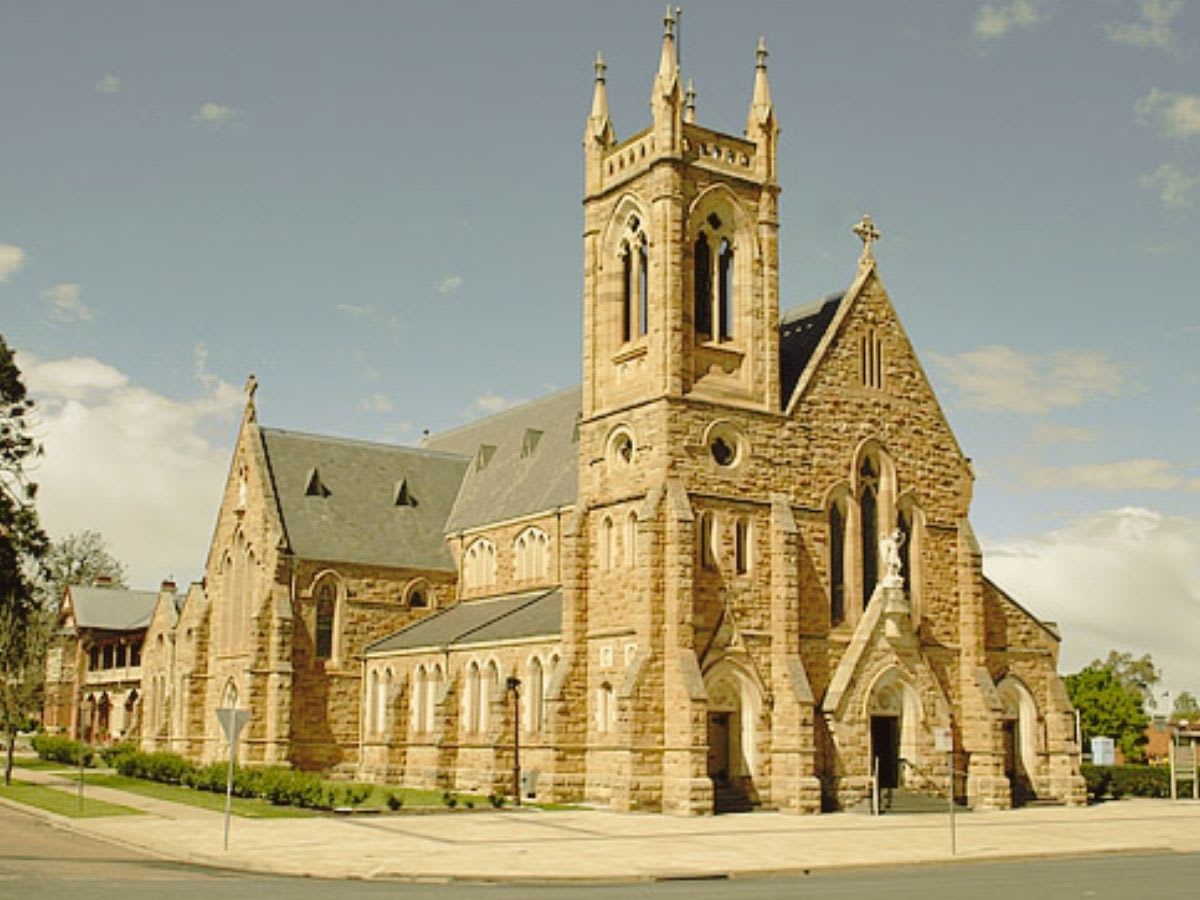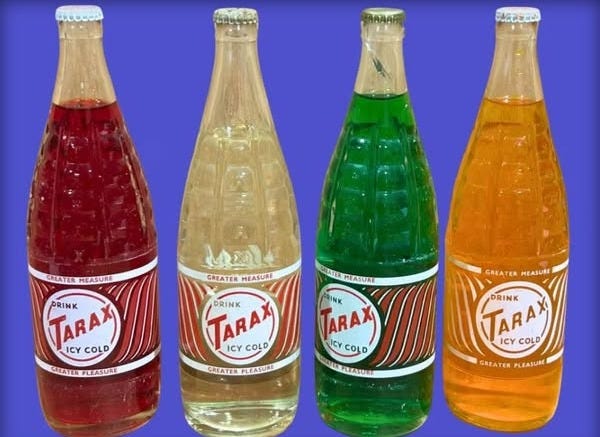Ritual, remembrance, and small rebellions shape April’s chapter. What follows is a short, spoiler-light guide to the places, slang, food, and textures that may be unfamiliar if you did not grow up in Australia, so the April scenes can land in their own ground.
“He raised his thumb. The blue nail caught the light.”
Where we are
St Michael’s, Wagga.
Catholic parish churches across regional New South Wales were built in stone, dim and resonant with incense, holy water fonts at the doors and padded kneelers in each pew. Easter Mass was a central ritual for families, the pipe organ and Bishop’s procession familiar in towns like Wagga.
ANZAC Day at school.
Every April 25, schools across Australia pause to mark the Gallipoli landing. Temporary stages, plastic poppy wreaths, flagpoles, and assemblies under shade sails were common settings. The anthem played then was still God Save the Queen (Advance Australia Fair was not adopted as national anthem until 1984).
The backyard.
Fibro and weatherboard houses with sagging Hills Hoists, deck chairs, and the smell of lamb roasting were ordinary suburban textures. Jasmine drifting over fences, dogs barking, kids painting nails or sprawled on canvas, these details locate April squarely in 1970s Wagga.
The river.
The Murrumbidgee continued as Christian’s backdrop. April brought cooler air after the long summer, with rope swings tied to pepper trees at the bends. Shirtless boys diving into cold water, thongs abandoned on the bank, an Australian rite of passage.
Everyday places and objects
Hills Hoist. The classic Australian rotary clothesline, often tilted or weather-worn in suburban backyards.
Tarax. A soft drink brand once widely sold in country towns, bottled in glass, left fizzing flat by the steps.
Woolies. Short for Woolworths, the national supermarket chain. Teenagers stealing nail polish or lollies from “Woolies” was a recognisable dare.
Fruit Tingles. Fizzy, pastel-coloured lollies by Allen’s. Shared in rolls, with each flavour claimed or refused.
Textas. Australian brand name for felt-tip pens, so common it became the generic word.
Form 2. The school year level now called Year 8 in NSW. Christian and Mary are part of this cohort.
Shade sail. A stretched canvas canopy used in schoolyards and courtyards to soften the heat.
Language and school culture
Form. NSW schools used “First Form,” “Second Form,” etc. instead of Years 7, 8.
Biro. Common shorthand for a ballpoint pen. A boy’s doodles or a poem’s draft always began in biro.
“Three-banana day.” Mary’s phrase captures an Australian habit of measuring appetite and heat by fruit in lunchboxes. Bananas were a staple of the time.
Footy. On the couch, Mary’s father drifts off during the footy, rugby league or union, depending on the region, but in Wagga league dominated.
Media and soundscape
Pink Floyd – The Dark Side of the Moon. Released internationally in March 1973, its sound drifted even into Wagga’s libraries and pool tape machines. Christian hears it again here: There’s someone in my head but it’s not me.
Sherbet. An Australian glam-pop band, blasting from passing cars in 1973. Their songs were part of the suburban teen soundtrack.
A mini glossary from the chapter
Hills Hoist – Australian rotary clothesline
Tarax – soft drink brand, popular in the 1970s
Woolies – colloquial for Woolworths supermarket
Fruit Tingles – fizzy, coloured lollies by Allen’s
Textas – felt-tip markers, generic Australian term
Form 2 – Year 8 in 1973
Footy – rugby league (NSW usage)
God Save the Queen – national anthem until 1984
ANZAC Day – April 25, commemorating Gallipoli and Australian war service
Then and now
In 1973, Catholic ritual in Wagga was dense with incense and hierarchy, while school assemblies carried the weight of ANZAC memory, plastic poppies and patriotic speeches under hot shade sails. Suburban life meant fibro houses, Woolies, Hills Hoists, Tarax bottles, Fruit Tingles, and backyard jasmine.
The textures remain: poppies still laid on ANZAC Day, Hills Hoists still spinning in older suburbs, Woolies still shorthand for the weekly shop. But the anthem has changed, footy clubs have shifted, and Tarax is long gone. What lingers is the detail: chipped blue polish in the sun, a rope swing on the river, and the sound of a song that says survival is its own kind of victory.
Questions welcome
If anything still felt unfamiliar, say where you stumbled in the comments, and I will expand this guide so the next reader can ride the current more easily.





